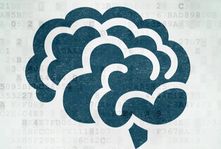research expertıse > Program Evaluation

In our laboratory, we design and conduct rigorous evaluation studies to identify the most effective interventions and policies to improve people's lives.
We identify the research questions concerning the program and the most appropriate evaluation design addressing those research questions. We value and follow scientific evaluation standards in our impact evaluation studies to ensure the findings are accurate and precise. We use quantitative and mixed methods to answer the following questions:
To read a summary of different types of evaluation (such as formative, process, outcome, and impact evaluations) (sosyal etki analizi) used to improve social programs and policies, click this link on Types and Uses of Evaluation. |
Program Evaluation Optimizing Interventions Methodological Innovations Advanced Data Analysis Systematic Reviews of Evidence |

Drug Prevention Program Evaluation: Unpacking the Mechanisms of Change
In this book chapter, we describe the use of a methodological tool (i.e. mediation analysis) to identify the causal mechanisms of prevention programs targeting drug use, smoking, and alcohol misuse. The chapter gives examples of evidence- based drug prevention interventions and describes how they achieved their effects. More... Raising Professional Capacity and Awareness on Autism: Impact Evaluation of a Large-Scale Teacher Training Program
In this ongoing study, we assess the impact of an autism teacher training program being implemented in 11 cities across North-East Turkey. The study, funded by TANAP (Trans Anatolian Natural Gas Pipeline Project) and implemented by TOHUM Autism Foundation, aims to answer for whom the training works the best, and identify the mechanisms of change in order to achieve the most cost and outcome-effective version of the training program. More... |

Evaluating the Impact of a Learn to Code Program on Children's Cognitive Development
Little is known about the impact of coding on children’s cognitive development. Using an experimental design, IEL assesses the impact of a 10-week coding program implemented by an education NGO (funded by Google.org). Outcomes such as spatial temporal reasoning, problem solving, and planning skills are being measured by developmental batteries and tasks. More... |

Long-Term Outcomes of After-School Programs
Using a matched comparison group evaluation design, we assessed the long-term (10-12 years after program entry) academic and psychological benefits of structured after-school programs implemented by the largest education NGO in Turkey. More... |

